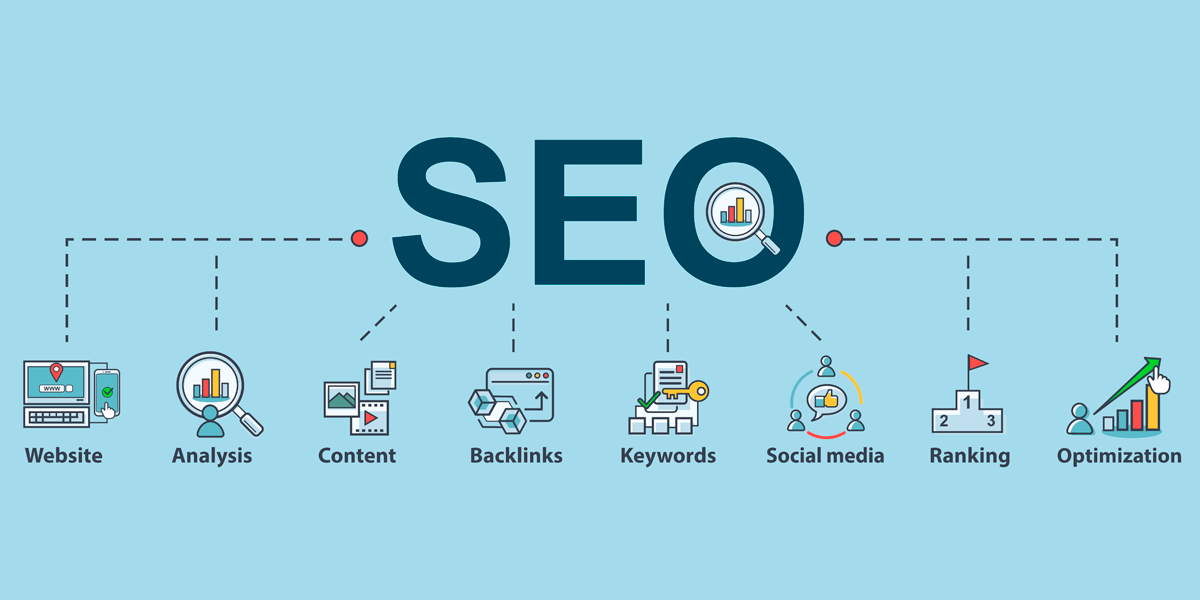Search Engine Optimization (SEO) plays a vital role in increasing a website’s visibility and driving organic traffic. It is a set of strategies and techniques designed to improve a website’s ranking on search engines like Google. With competition growing in every industry, mastering SEO is essential for anyone looking to succeed online. This article will explore actionable SEO optimization tips to help improve your website’s search engine rankings and overall performance.
Understand Your Audience and Keywords
The first step in SEO optimization tips is understanding your target audience and identifying the right keywords. Keywords are the terms that potential customers use to find services or products like yours on search engines. Using the right keywords is crucial for ranking on search engine results pages (SERPs). Start by conducting in-depth keyword research using tools like Google Keyword Planner, Ahrefs, or SEMrush. Focus on long-tail keywords—phrases that are more specific and less competitive. These keywords are often easier to rank for and tend to attract more qualified traffic. Consider user intent while selecting keywords; make sure they align with what your audience is looking for when they search.
Optimize On-Page SEO Elements
On-page SEO refers to all the optimization activities you can perform directly on your website’s pages to improve rankings. Title tags, meta descriptions, headings, and URLs all play a significant role in helping search engines understand your content. Ensure that your title tags are compelling, concise, and include your main keyword. Meta descriptions should summarize your page content clearly while also containing relevant keywords. Headings (H1, H2, etc.) help break up your content and make it easier to read, while also helping search engines identify the structure of your page. Optimize URLs by making them descriptive and including your target keywords. Well-optimized on-page elements can significantly improve your chances of ranking higher in search results.
Improve Website Speed
Website speed is a critical factor for both user experience and SEO rankings. Google has made it clear that page load speed is a ranking factor, meaning slow websites are less likely to perform well in search results. A slow website can frustrate users, leading to higher bounce rates and lower engagement. To optimize your site’s speed, consider compressing images, minimizing the use of heavy plugins, and leveraging browser caching. Tools like Google PageSpeed Insights and GTmetrix can help you analyze your website’s speed and provide recommendations for improvement. Prioritize fixing any performance issues to ensure users have a smooth experience when navigating your site.
Focus on Mobile-Friendliness
With mobile traffic surpassing desktop usage, Google has shifted to mobile-first indexing. This means Google now primarily uses the mobile version of your website to determine its rankings. A website that is not mobile-friendly will likely struggle to rank well on search engines. Ensure your website is responsive, meaning it adjusts to fit any screen size, whether it’s a smartphone, tablet, or desktop. A responsive design improves user experience, reduces bounce rates, and enhances overall SEO performance. Test your website’s mobile compatibility using Google’s Mobile-Friendly Test tool, and make necessary adjustments to provide users with an optimal mobile browsing experience.
Create High-Quality, Engaging Content
Content is at the heart of SEO optimization. Creating high-quality, engaging, and informative content is essential for attracting visitors and encouraging them to stay longer on your site. Google rewards websites that provide value to users, which is why your content should aim to solve problems, answer questions, and offer in-depth insights on the topic at hand. Use a variety of content formats, such as blog posts, videos, infographics, and case studies, to keep your audience engaged. Regularly update your content to ensure it remains relevant and accurate. Google favors fresh content, and by consistently posting valuable material, you increase your chances of ranking higher in search results.
Leverage Internal Linking

Internal linking is an often-overlooked SEO tactic that can significantly improve your website’s structure and SEO performance. Internal links are hyperlinks that connect different pages on your website. They help search engines crawl and index your site more effectively, while also guiding visitors to related content, increasing page views, and reducing bounce rates. Be sure to use descriptive anchor text for your internal links and link to relevant pages on your site. Don’t overdo it, but aim for a natural flow of links that enhances the user experience. A well-structured internal linking strategy not only helps with SEO but also improves the overall usability of your website.
Optimize for Local SEO
For businesses targeting local customers, local SEO optimization is essential. Local SEO helps your website appear in local search results when people search for services or products in your area. Claim and optimize your Google My Business (GMB) listing, ensuring that your business information (name, address, phone number) is accurate and consistent across all platforms. Encourage customers to leave reviews on your GMB profile and other review sites, as positive reviews can boost your credibility and improve your local rankings. Additionally, include location-based keywords in your website’s content and meta tags to increase visibility for local searches.
Build Quality Backlinks
Backlinks are one of the most important ranking factors in SEO. A backlink is a link from another website pointing to your site, and search engines consider backlinks as votes of confidence. The more high-quality backlinks you have, the higher your website’s authority will be, which can lead to higher rankings. Focus on acquiring backlinks from reputable, authoritative websites in your industry. There are several ways to build backlinks, including guest posting, creating shareable content, and forming partnerships with influencers or bloggers. Avoid low-quality backlinks from spammy sites, as they can hurt your rankings. Instead, focus on earning valuable backlinks that contribute to your website’s credibility and trustworthiness.
Use Schema Markup for Enhanced Visibility
Schema markup is a type of structured data that you can add to your website’s code to help search engines understand the content of your pages better. By implementing schema markup, you can enhance the way your website appears in search results with rich snippets, such as star ratings, reviews, event details, or FAQs. These enhanced search results can attract more clicks and increase visibility, giving your website a competitive edge. Use schema markup for products, recipes, local businesses, and articles to provide more context to search engines. Google’s Structured Data Testing Tool can help you check if your schema markup is implemented correctly.
Monitor Your SEO Performance
SEO optimization is an ongoing process, and it’s important to continuously monitor your website’s performance to ensure that your efforts are paying off. Use tools like Google Analytics and Google Search Console to track traffic, user behavior, and keyword rankings. These tools provide valuable insights into which pages are performing well and which ones need improvement. Regularly review your SEO performance to identify areas for growth and refinement. Keep track of your competitors and stay updated on the latest SEO trends and algorithm changes to stay ahead of the curve.
Stay Updated with SEO Trends and Algorithm Changes
SEO is a constantly evolving field, with search engines frequently updating their algorithms to improve user experience and search result accuracy. To maintain and improve your website’s rankings, it’s crucial to stay updated with the latest SEO trends and algorithm changes. Follow reputable SEO blogs, forums, and industry experts to keep up with the latest best practices. Google’s algorithm updates, such as Panda, Penguin, and RankBrain, can have a significant impact on your rankings, so it’s important to adapt your SEO strategy accordingly. By staying informed and flexible, you can continue to optimize your website for success in an ever-changing digital landscape.
Conclusion
SEO optimization is an essential practice for any website looking to increase its visibility and attract organic traffic. By following these SEO tips and strategies, you can improve your website’s rankings, enhance user experience, and ultimately drive more conversions. From keyword research and on-page SEO to mobile optimization and backlink building, each aspect of SEO contributes to your overall success. Stay patient, as SEO is a long-term strategy, but with consistent effort and a focus on providing value to your audience, you can achieve lasting success in the competitive online world.
















